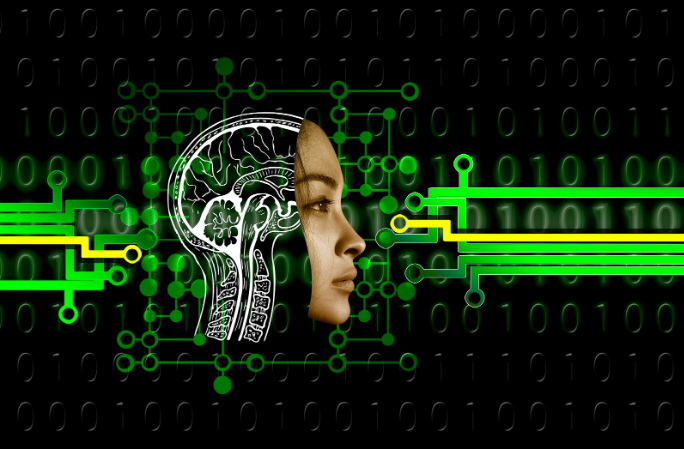The more high-quality data an AI has available to it, the smarter it appears. That’s why data scientists design machine learning (ML) models in the first place. It helps AIs deal with huge data sets, adjust to new information and make more intelligent data-based predictions.
Almost every field stands to benefit from such smarts and digital marketing is no exception. Here are six reasons that using AI in digital marketing applications makes so much sense.

1. Personalize the customer experience
Customization isn’t just a perk. In today’s consumer-centric e-commerce landscape, personalization is an industry-standard. Consumers expect brands to tailor their messages to their individual interests besides typical variables such as location and language.
In a 2017 report by Accenture consulting firm, 40 percent of the surveyed consumers mentioned poor personalization as a reason to switch brands. 43 percent stated that they prefer to make purchases from companies that personalize the customer experience.
Research firm Gartner predicts that, by 2020, 90 percent of all brands will use marketing personalization, but producing optimally personalized content would be their main obstacle. AI algorithms allow marketers to offer a personalized customer experience. It’s the AI that learns the behavioral patterns of each user, and then features and suggests personalized content.
2. Scaling content
AI-based content strategy tools help marketers analyze the performance of their content. Some of the tasks the software automates include identifying the best performing content, planning, and distribution.
Nowadays, companies like Forbes use AI-based content curation solutions to generate raw materials for their writers. The software can help you select topics and headlines. Some tools can also create outlines and raw drafts. You can use these solutions to speed up the production of content.
3. Automating marketing processes
Marketers spend countless hours trying to locate the right picture or the last approved version of a media file. Using a digital asset management system offers a solution to store, organize, search, retrieve and share digital content.
Most commercial digital asset management solutions operate in a cloud environment, which makes them quick to deploy and easy to use. AI-based DAM solutions include image recognition technology for auto-tagging images and media files. Instead of spending hours organizing your content, you can configure the AI to do it for you.
4. Predicting consumer behavior
Some AI-powered solutions predict consumer behavior based on past behavior patterns. The software analyzes behavioral data and then compares it with statistical models Being able to anticipate customer behavior and send them targeted marketing messages is the holy grail of marketing.
AI-based analytics allows marketers to create an individual buying funnel for each customer. In addition, AI solutions can help you identify and prioritize the most valuable leads, thus increasing the effectiveness of your sales team.
5. Chatbots and talkbots
Chatbots and talkbots are computer programs that simulate conversation with human users over the Internet. As an AI application, it operates without human intervention, interacting via messages (chatbots) or voice commands (talkbots).
Companies usually embed chatbots on their websites to provide customer or sales support. Chatbots can also operate through messaging applications. Organizations can use chatbots to answer customer queries, answering common questions in human-like conversations, thus improving the overall customer experience.
6. Better purchasing experiences
AI is changing the way we shop. One example is the virtual fitting room which enables the use of augmented reality (AR). Customers can use the virtual fitting room to try on the clothes in a virtual setting, before making a purchase. The customer stands in front of a screen fitted with a camera and selects the clothes from a menu. The virtual fitting room then displays a real-time image of the customer wearing the outfit.
Companies like Gap and TopShop are using artificial intelligence technology to enhance their customer experience. Now you can shop online for clothes and try them virtually. Amazon has patented a virtual reality mirror that acts as a virtual fitting room in your own home. You can see how it works in this video.
Not only e-retailers leverage artificial intelligence for their marketing efforts. IKEA, the furniture giant, plans to release an app that will show customers how products will fit into their homes. Customers can input the dimensions and characteristics of their rooms. Then, when selecting a product, they can view it as it would appear in the actual room. The user can purchase the product via the app interface.
The Bottom Line
Advancements in AI are helping marketers personalize their offerings according to the expectations of individual customers. AI can help you improve marketing workflows. An AI DAM solution automates repetitive tasks and reduces wasted time looking for assets. You can get those campaigns done faster.
AI can enhance the customer experience by providing customers with personalized content and automatic customer service. There are plenty of AI solutions to choose from, many of which create a win-win situation that improves business efficiency and customer experience.
For aNewDomain, I’m Gilad David Maayan.













